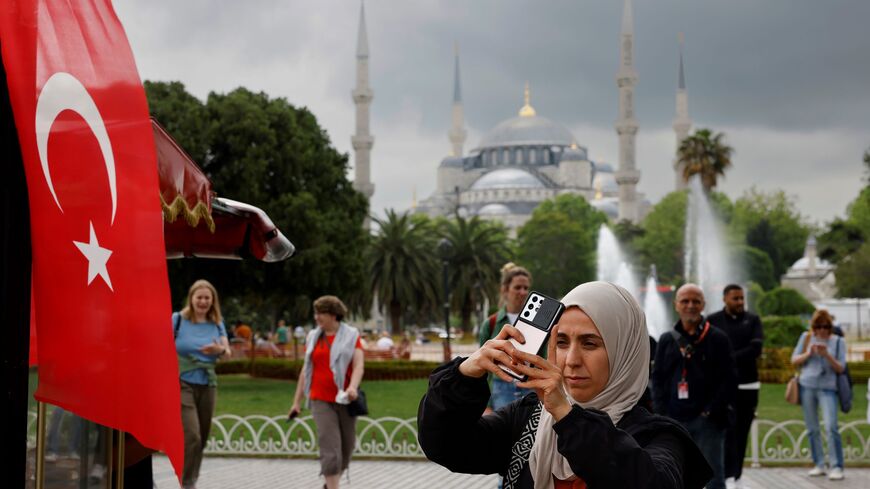ISTANBUL — Turkey’s economic turmoil will challenge newly reelected President Recep Tayyip Erdogan as uncertainty lingers on whether he will stick to his controversial economic policies or take a more orthodox path.
The country’s economic fragility, marked by a foreign currency crunch, a battered lira and high inflation, is widely blamed on Erdogan’s policy of cutting interest rates. His pursuit of that policy in the past two years has fueled an inflation storm and sunk the Turkish lira. To ease the crunch and prop up the lira, Ankara has relied on a costly deposit scheme and sought foreign currency support from Gulf countries and Russia, with the central bank burning through its international reserves.
Following Erdogan’s victory in Sunday’s presidential runoff, both domestic economic actors and foreign investors are eager to see whether he will change course or insist on what many see as an unsustainable path. In terms of mandate, he has a free hand, commanding sweeping executive powers and a comfortable majority in parliament.
Compounding problems
The Turkish economy relies heavily on imports, including energy and raw materials. Any surge in foreign currency prices means rising consumer prices. The lira has lost 77% of its value since June 2018, when Erdogan became Turkey’s first executive president following constitutional changes. While Ankara heavily managed the foreign exchange market to keep the lira afloat ahead of the elections, apprehension grew of fresh currency turmoil if Erdogan won reelection and refused to amend his policies. Morgan Stanley analysts said Sunday that the lira could lose up to 29% of its value by year-end without a change in policy direction. The lira has tumbled to record lows since Sunday’s vote, but the slide has been relatively limited thus far and Erdogan is unlikely to let the economic mess continue.
The so-called FX-protected deposit scheme — introduced after a full-blown currency crisis in December 2021 to rein in dollarization — appears thus far to have encouraged depositors to convert their hard currency to liras. Under the scheme, the treasury and the central bank compensate lira depositors for any losses they incur from the fall of the currency, in addition to the interest paid by banks. Foreign currency deposits in Turkey today account for about 40% of all deposits, down from 60% before the introduction of the scheme. The deposits in the scheme represent almost a quarter of all deposits.
To advance the “liraization” goal, the authorities have obliged banks to hold low-yielding government bonds if the lira deposits of their customers total less than 70% of all deposits. Spurred by such sanctions, banks have worked hard to attract money into the FX-protected scheme, helping curb the demand for foreign exchange on the market and channeling hard currency from converted deposits to the central bank.
This policy, however, has come at a price. Last year, the treasury and the central bank shouldered the bulk of the cost, paying about 200 billion liras in compensation to depositors in the scheme. Earlier this year, the authorities scrapped the upper limit of interest that banks can offer, leading annual rates to reach 35%. The state still has to compensate depositors for the lira’s depreciation, but its burden appears to have eased as the authorities’ increasingly hands-on role in the forex market has limited the fall of the lira. The scheme is likely to remain the government’s prime bulwark in defending the currency.
And propping up the currency means containing inflation. Since peaking at 85.5% in October, annual consumer inflation has dropped to about 44%, thanks largely to a favorable base effect. However, surging food prices, in particular, remain a major popular grievance amid supply deficits stemming from a decline in the country’s agricultural sector. Such shortages can hardly be resolved in the short run, and inflation is likely to continue to be a headache for Erdogan.
Budget deficit
The president has to deal also with a budget problem, aggravated by public spending after the two huge earthquakes in southern Turkey in February. The budget deficit in the first four months of the year amounted to half of the deficit projected for the whole year and is expected to reach 6% of gross domestic product by year-end. The government needs a supplementary budget, which raises the specter of new taxes and belt-tightening measures.
To control inflation, Turkey must also cut its foreign exchange expenditures (imports) and boost hard currency revenues through exports and tourism. Targeting a less ambitious economic growth rate — about 2% to 3% — is one of Erdogan’s policy options and arguably the likeliest one. But with local elections in March 2024, he can ill afford to cool the economy too much.
Last but not least, Erdogan needs to restore his economic credibility to lure foreign investors back to Turkey. In an important step in that direction, he is reportedly planning to give the economy portfolio to Mehmet Simsek, a former minister who enjoys respect in international financial circles. Simsek had ruled out a return to politics in March, but met with Erdogan on Monday, rekindling speculation that he would accept a post in the new government. Many observers believe that such a move would give confidence to investors to revive the flow of foreign funds to Turkey.







